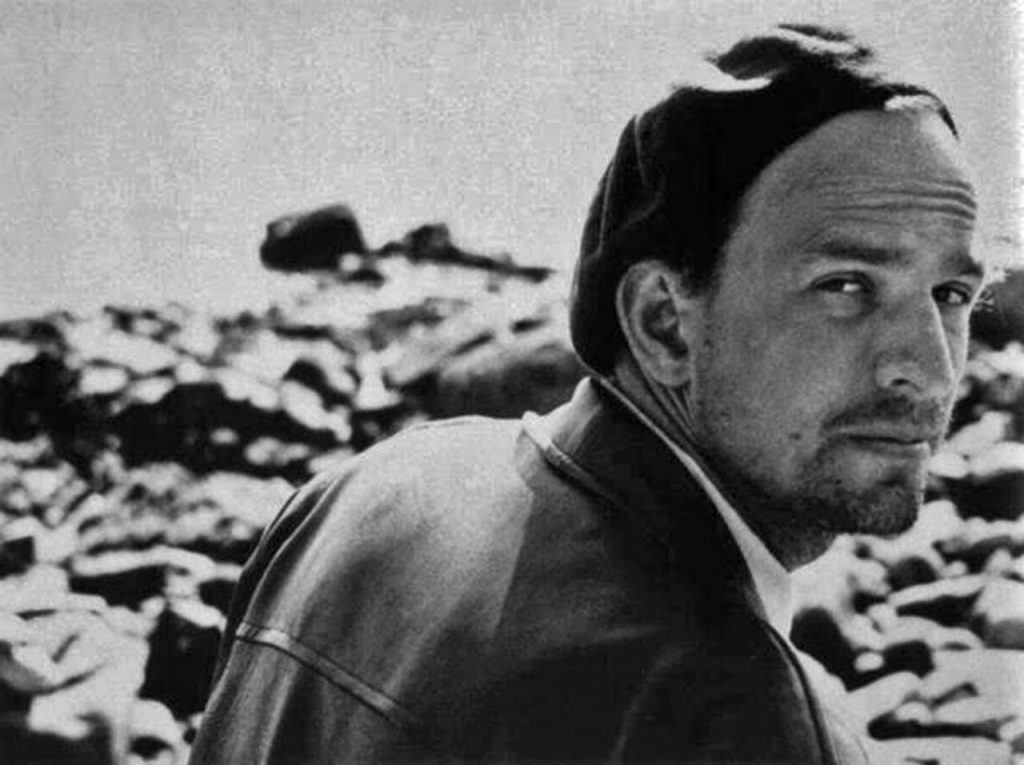suggestion
Bergman Centenary
Searching for Ingmar Bergman

To celebrate the centenary birth of one of the greatest filmmakers of the second half of the twentieth century, there are several opportunities to revisit Ingmar Bergman's profuse, brilliant oeuvre. In addition to the screening of many of his masterpieces and the premiere of two essential documentaries on the Swedish film director, stage director and playwright, there is also a tribute directed by choreographer Olga Roriz.
Let’s start at the end, as if we were suggesting an itinerary to celebrate Ingmar Bergman’s 100 years. And ‘at the end’ means (re)discovering the Swedish filmmaker’s final work – Saraband(2003). At Cinema Ideal from July 12 onward, Liv Ullmann and Erland Josephson return to the silver screen to revisit, 30 years later, the characters from Scenes from a Marriage (1973). The two Bergmanian actors are joined by Borje Ahlstedt and Julia Dufvenius to interpret – in the words of Bergman himself – “a concert for symphony orchestra with four soloists.” A magnificent, innovative work in the use of digital cameras, Saraband’s return coincides with Bergman’s birthday on July 14.
And on the same day the Portuguese choreographer Olga Roriz will showcase A Meio da Noite (In the Middle of the Night) at Festival de Almada. According to Roriz, this work addresses “Bergman’s existentialist themes, and it is also a piece about the creation process, in a relentless search for oneself and others.” Touring in Portugal and Brazil, A Meio da Noite will be staged at Teatro Camões in October.
Back to Bergman’s oeuvre, key titles from his filmography will also be screened in October – not only in Lisbon but also around the world (just have a look at the Ingmar Bergman Foundation webpage to gauge the magnitude of the event). At Espaço Nimas, besides absolute masterpieces like The Seventh Seal or Persona,which have been regularly screened in that venue over the past few years, this new cycle includes three ‘new’ titles: Hour of the Wolf,, Shame (both released in 1968) and The Passion of Anna (1969), films that had not yet been included in the extensive catalog of Leopardo Filmes, the company that distributes and publishes Bergman’s films in Portugal.
In addition to his oeuvre, Espaço Nimas will also screen two documentaries focusing on the Swedish master’s unique personality. In Bergman – A year in a life,Jane Magnusson revisits the pivotal year of 1957, when The Seventh Seal and Wild Strawberries earned him international acclaim as a major filmmaker; when he made his first TV movie; and when he directed several theatrical productions, including a 5-hour rendering of Ibsen’s Peer Gynt. According to Variety,Magnusson’s documentary is a striking portrayal of “a man so consumed by work, and by his obsessive relationships with women, that he seemed to be carrying on three lives at once.”
The second film to be premiered is Searching for Ingmar Bergman,by Margareth von Trotta (director of Hannah Arendt). In this documentary, the German filmmaker sets out to trace Bergman’s legacy by compiling interviews with directors who have been “touched” by the master, such as Olivier Assayas, Ruben Östlund, Mia Hansen-Love and Carlos Saura; screenwriters and playwrights, such as the great Jean-Claude Carrière; and actors, such as Liv Ullmann.
And to close this “itinerary,” a complementary suggestion: Bergman’s autobiography The Magic Lantern,published in Portugal as A Lanterna Mágica (Relógio d’Água). Here the filmmaker wrote: “Film work is a powerfully erotic business; the proximity of actors is without reservations, the mutual exposure is total. The intimacy, devotion, dependency, love, confidence and credibility in front of the camera’s magical eye… the mutual drawing of breath, the moments of triumph, followed by anticlimax: the atmosphere is irresistibly charged with sexuality. It took me many years before I at last learned that one day the camera would stop and the lights go out.”
Ingmar Bergman was born on July 14, 1917, in Uppsala, a small town north of Stockholm. The son of a Lutheran pastor, his oeuvre was indelibly marked by his rigid, austere education. He became interested in theater as a student at Stockholm University (he wrote his first play, The Death of Kasper, in 1941). Cinema came afterwards – his first script was written for Alf Sjöberg’s Torments (1944). His directorial debut would take place the following year, with Crisis. Subsequently, Bergman built a long career in theater and film, and was globally acclaimed as one of the most brilliant authors of our time. He died in Fårö Island on July 30, 2007.